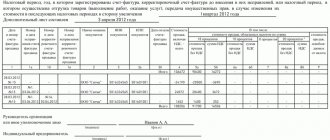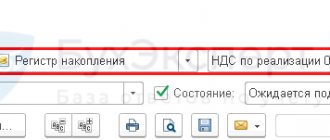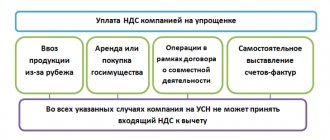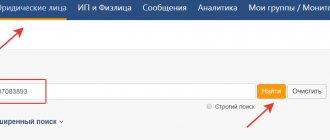Beneficiary: definition of the term
A beneficial owner - this is enshrined in the legislation of the Russian Federation - is recognized as an individual who directly or through third parties owns more than 25% of the capital of a legal entity or has the ability to exercise control over the actions of this legal entity (Article 3 of the Law “On Combating Money Laundering” dated 07.08.2001 No. 115-FZ).
The law also provides for the status of the beneficial owner of an individual (by default, this is the same individual, unless there is reason to believe otherwise). See also “The procedure for identifying a client in a bank according to Law 115-FZ.”
Example
The authorized capital of Salut LLC belongs 70% to Lux LLC, 20% to V. S. Petrov and 10% to A. V. Stepanov. At the same time, Stepanov owns 100% of the authorized capital of Lux LLC. Thus, Stepanov is the beneficial owner of Salyut LLC, despite the fact that de jure his share in this organization is 2 times less than Petrov’s share.
Thus, the status of beneficial owner is a legal category, and its characteristics are prescribed at the level of industry-wide legal norms. However, what position can a beneficiary occupy in the business management structure? Let's consider how the key positions in the company of the founder and general director correlate with the status of the beneficial owner - this is important from the point of view of a more detailed understanding of the role of beneficiaries at various levels of legal relations.
Who is the Beneficial Owner in an LLC?
According to the provisions of paragraph. 13th century 3 of the Federal Law “On Counteracting...” dated August 7, 2001 No. 115, the beneficial owners of a legal entity are individuals or other legal entities who, independently or through third parties, own this legal entity or have the right to exercise control over its actions. The basis for obtaining beneficiary status is the presence of a share in the company's capital of 25% or more.
Federal Law No. 115 does not determine the procedure for determining the exact size of the share owned by a particular person, therefore, when resolving this issue, one can be guided by the procedure for determining the degree of interdependence of persons used in the field of taxation. The exact sequence of such actions is established in paragraph 3 of Art. 105.2 of the Tax Code of the Russian Federation, and also commented in detail in the letter of the Ministry of Finance “On the application...” dated 08/16/2013 No. 03-01-18/33535.
The beneficial owner may:
- take part in meetings of shareholders;
- influence the choice of the head of the company;
- choose the field of activity of the enterprise;
- dispose of his share in the authorized capital, etc.
Information about beneficiaries is not always displayed in the company's official documentation, but this is not an obstacle to their influencing its activities.
The reason for the lack of direct indications of the persons who are the beneficiaries of the company may be:
Don't know your rights? Subscribe to the People's Adviser newsletter. Free, minute to read, once a week.
- use of offshore zones for cash flow transactions;
- tax avoidance;
- legalization of proceeds from crime, etc.
Is the beneficiary the founder or the CEO?
Fundamentally, it does not matter what position a person holds in a business - founder, director or co-owner. The main thing to establish the status of the beneficial owner is the compliance of the person’s role in the business with the criteria defined in Art. 3 of Law No. 115-FZ. He can be the actual owner (without having a legally secured share in the business - we will consider the features of this status later in the article) and at the same time the general director, or de facto make key decisions in the management of the organization, while the director will be another person.
Of course, in general, the beneficial owner is the founder of the company (or one of them). But it is possible that he will be the person who subsequently purchased the required share of the authorized capital. There are common cases when the beneficial owner of a legal entity is the founder of the company that owns the main share of the relevant legal entity.
Example
Citizen Lvov A.E. owns 55% of the shares in PJSC Victoria, which, in turn, owns 70% of the shares in PJSC Almaz. In fact, Lvov does not directly own Almaz shares, but is an indirect participant in this company. The share of his indirect participation will be 0.55 × 0.70 = 0.385, or 38.5%. Consequently, Lvov has a dominant participation (more than 25%) in the capital of PJSC Almaz and meets the criteria of the beneficial owner of this company.
So, the concept of a beneficiary is enshrined in law. But can we say that the status of beneficial owner is the same concept as implied by another common term - “actual owner”?
Beneficial owner is any founder or specifically director
Everything is very simple here. By and large, it does not matter much whether the beneficiary is a co-owner, general director or founder of the company. The most important thing is that a particular person exactly corresponds to the definition given in Law 115.
That is, in essence, a person called a beneficiary can:
- become both the formal and actual owner of a business entity;
- at the same time, hold the post of director or informally make decisions affecting the activities of the company, ceding the leadership position to another.
It doesn’t really matter here whether the share in the capital is legally assigned to him or not. However, in the vast majority of cases, the beneficial owner is directly named as the founder of the enterprise. But this does not mean that such status is not transferred to the person who subsequently acquired the required share in the authorized capital. In practice, there are very often cases when the beneficiary is the founder of a company that owns the main share of a particular economic entity.
Let's look at an example. Smutyanov owns 65 percent of JSC Kon. The latter owns 75% of PJSC Spring. It turns out that Mr. Smutyanov in fact does not have a single share in the latter enterprise, but
This is still considered a co-owner of "Kisa", although, of course, only indirectly. Now we need to find out whether he can be called a beneficiary? Here you will need to calculate the share. The procedure is as follows: 0.65 × 0.75 = 0.4875. That is, it turns out that Smutyanov has 48.75% of the capital. An unambiguous conclusion follows from this: the named businessman has the status in question.
Are the beneficiary and the actual owner (legal entity or individual) the same thing?
The concept of “actual owner” at the level of legislation of the Russian Federation, in turn, is not fixed. In some sources of law it is given in the same context as the term “beneficial owner” (for example, in the letter of the Ministry of Finance of the Russian Federation dated 04/09/2014 No. 03-00-РЗ/16236). Is it possible to identify them in this regard?
In principle, this is legal, and the reason for this is given by the definition of beneficial owner given in Law No. 115-FZ. This regulation states that a beneficiary may correspond to a person who has the ability to influence decisions made by a legal entity (even though he may not own any shares in the authorized capital of the company).
It is quite acceptable to call the “actual owner” a person who, for one reason or another, is the beneficial owner of an individual. Moreover, in this case it is legitimate to talk about some “pure form” of actual ownership, since the legislation does not provide for the allocation of the authorized capital of an individual. For example, the beneficiary (actual) owner of an individual can be called the recipient of funds indicated by the individual in his will.
Thus, the status of beneficial owner is a legal category that can be identified with the concept of “actual owner,” and this identification is best applied in the context of control over the actions of a legal entity or an individual. In the context of ownership of the authorized capital of a legal entity, it is better to use only the term “beneficial owner”.
The legislative framework
The legislation of our country will help you understand the concept of a beneficiary more specifically. The main regulatory act in this area is the so-called. “anti-money laundering law” 115-FZ. It defines the term “beneficial owner” (paragraph 13, article 3 of law 115-FZ):
The same federal law stipulates the obligation of banks and other financial institutions involved in transactions with funds to identify beneficial owners. The law also specifies the specifics of identifying these persons.
The latest amendment to the law was approved on June 23, 2016 and recorded in 215-FZ. It clarifies the specifics of the disclosure of information by legal entities. According to this regulatory act, they must record data on beneficial owners in their databases.
There is a requirement to regularly update this information at least once a year. They are required to provide this information upon request:
- authorized bodies,
- tax authorities;
- federal executive body.
A legal entity that does not provide this information will be fined.
The improvement of the legislative framework was caused by the need to increase the transparency of the activities of organizations and reduce the risks of their involvement in questionable activities, including those related to money laundering and the financing of terrorist activities.
The legislative framework regulating relations with beneficiaries was supplemented by Bank of Russia Regulation No. 499-P dated October 15, 2015. It prescribes the specifics of identifying beneficiaries and beneficial owners by credit institutions to ensure anti-income purposes. The Regulations specify:
- criteria for identifying beneficiaries by credit institutions;
- documents provided by its clients for these purposes;
- features of maintaining a client’s file;
- other questions.
At the same time, the Central Bank of the Russian Federation regularly explains to credit institutions the specifics of the operation of these laws and examines exceptional cases. These points are covered both in letters from the Central Bank of the Russian Federation and in conferences, round tables, etc.
Which companies must keep records of beneficiaries?
Obligations for accounting of beneficiaries are assigned to legal entities other than:
- state or municipal structures;
- international organizations;
- by issuers of shares within the framework of organized trading (when disclosing information on securities in the prescribed manner);
- foreign issuers of shares as part of trading on a foreign exchange (if the exchange is included in the list determined by the Bank of the Russian Federation);
- foreign subjects of legal relations that do not have the status of a legal entity and do not provide for the presence of beneficiaries and the position of a general director.
Organizations are obliged to know their beneficiaries and, if necessary, take measures to obtain information about them listed in subparagraph. 1 clause 1 art. 7 of Law No. 115-FZ, update this information annually, store the received data for at least 5 years.
In addition, information about the beneficiaries of the company may be disclosed in its reporting - in the manner prescribed by law (clause 7, article 6.1 of law No. 115-FZ). The procedure for disclosing information is defined in PBU 4/99 “Accounting statements of an organization”, PBU 11/2008 “Information about related parties” and in the recommendations to auditors contained in the Appendix to the Letter of the Ministry of Finance of Russia dated January 29, 2014 N 07-04-18/01 ( Letter of Rosfinmonitoring dated July 29, 2019 N 01-04-05/17015). In particular, information about such persons is disclosed in the notes to the balance sheet and income statement.
Which firms must disclose their beneficiaries?
Legal entities, as well as individual entrepreneurs, are required to provide information about beneficiaries upon request (Clause 6, Article 6.1 of Law No. 115-FZ, Clause 10 of the regulations approved by Decree of the Government of the Russian Federation of March 19, 2014 No. 209):
- to Rosfinmonitoring;
- to the Federal Tax Service.
In addition, when contacting an organization or individual entrepreneur that manages funds, the legal entity and individual entrepreneur provide information about their beneficial owners - this is also their legal obligation, provided for in paragraph 14 of Art. 7 of Law No. 115-FZ. The scope of this information is defined in paragraph. 2 subp. 1 clause 1 art. 7 of Law No. 115-FZ.
ConsultantPlus experts explained step by step how companies record and disclose information about beneficiaries. Get trial access to the K+ system and upgrade to the Ready Solution for free.
The form of information about beneficial owners is not approved by law. But it should include:
- Full name of beneficial owners;
- citizenship;
- Date of Birth;
- passport data (or information from another identification document);
- residence address;
- TIN.
A sample form for completing the certificate can be downloaded below.
Failure by a company to provide information about beneficial owners to the specified government agencies is a reason for applying sanctions against it under Art. 14.25.1 Code of Administrative Offenses of the Russian Federation. Namely, a fine for officials in the amount of 30,000-40,000 rubles, for legal entities - 100,000-500,000 rubles.
How to become a beneficiary of an individual
The beneficiary of an individual must, in any case, be identified. This factor is specified in the standards of international organizations. But getting any information about them is quite difficult. There are many reasons and they can be explained by the fact that they independently publish such information. Or they may deliberately remain silent.
A beneficiary of an individual is a trustee or legally represented representative of an entity. Of course, if you don’t pay attention to the criminal side of the issue. For example, there are cases where students, unemployed or low-income people participate in cashing out large sums. There are a lot of similar schemes.
If you look at the situation from a formal point of view, these persons cannot be called beneficiaries. But their actions were carried out in accordance with the law, they carried out the operation, which means they are such, although the bank cannot reveal information about their accounts.
Founder and beneficiary - what's the difference? We tried to answer the question posed. As a result, I would like to note that information about beneficiaries is determined by banking organizations. Before opening an account, the client must fill out a form where he indicates all the information about himself. This data is transmitted to Rosfinmonitoring.
It is almost impossible to obtain information about beneficiaries. This remains a secret of the credit organization and the information received is not disseminated.
Results
A beneficial owner is a founder or director, one of the owners or the actual owner of the company (even if de jure he does not own any shares in the authorized capital of the organization), who has the ability to at least control the activities of the relevant business entity. In this case, the organizational and legal status of this entity does not matter - it can be either a legal entity or an individual entrepreneur.
To legally determine the status of beneficial owner, it is necessary that an individual owns at least 25% of the authorized capital of the organization. Firms and individual entrepreneurs are required to inform Rosfinmonitoring, the Federal Tax Service, and organizations managing funds about their beneficiaries upon request.
You can learn more about the specifics of the work of financial control authorities (which, in particular, have the authority to request information about their beneficiaries from legal entities and individual entrepreneurs) in the articles:
- “Auditors will report all suspicious transactions to Rosfinmonitoring”;
- “Bodies exercising financial control in the Russian Federation (list)”.
Sources:
- Law “On Combating the Legalization (Laundering) of Proceeds from Crime and the Financing of Terrorism” dated 07.08.2001 N 115-FZ
- Code of Administrative Offenses
You can find more complete information on the topic in ConsultantPlus. Free trial access to the system for 2 days.
“Beneficial owner” and “controlling person” of the CFC
The definitions established by Russian legislation of a “beneficial owner” for AML/CFT purposes and a “controlling person” for tax purposes of controlled foreign companies (CFCs) do not coincide, but are often used as synonyms when it comes to the tax obligations of Russian beneficiaries of offshore companies. The differences are as follows:
Firstly, such a characteristic as “controlling person” is used in the Russian Federation only in relation to foreign companies and structures for tax purposes according to CFC rules. Whereas the concept of “beneficial owner” for AML/CFT purposes is applicable to any - both Russian and foreign companies.
Secondly, the basis for recognition as foreign is tied to the country of tax residence of the controlling person (that is, if such a person is a tax resident of the Russian Federation, then this is foreign). For AML/CFT purposes, the tax residence factor is not relevant.
Thirdly, according to the Tax Code of the Russian Federation, a “controlling person” can be not only an individual, but also a legal entity. This, however, does not exempt individuals - tax residents of the Russian Federation, who indirectly (i.e. through Russian legal entities) control foreign companies, from declaring their participation and control over them to the tax authorities of the Russian Federation.
Fourthly, if more than half of the participants in a foreign company are tax residents of the Russian Federation, the percentage “bar” of a person’s participation in the company’s capital, the excess of which entails recognition of the person as “controlling”, becomes lower - and is no longer 25%, but only 10 % (subclause 2 of clause 3 of Article 25.13 of the Tax Code of the Russian Federation).
In practice (adjusted for the above features), the “controlling person” and the “beneficial owner” of a foreign company are often the same person. Therefore, in media publications dedicated to the deoffshorization and taxation of CFCs, they talk about “beneficiaries”, meaning specifically “controlling persons”.









